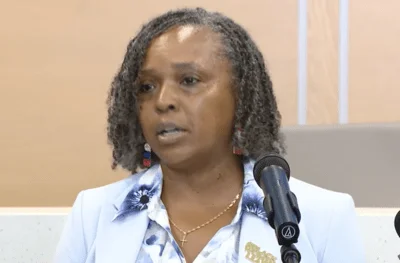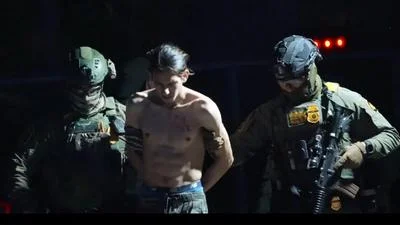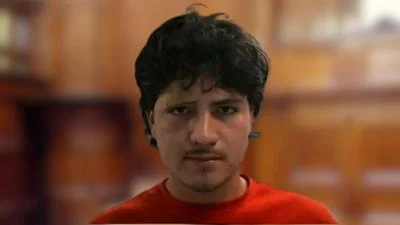Adventist La Grange Memorial Hospital issued the following announcement on Jan. 24.
Roughly one in five adults have varicose veins. Although the AMITA Health Center for Laser Vein Treatment performed varicose vein surgery on more than 350 patients in 2018, it was less than one in five of its community’s eligible population. Why aren’t more people saying goodbye to those gnarled, engorged blue veins?
There are many good reasons to get varicose vein surgery beyond simple aesthetics. It eliminates pain, discomfort and muscle fatigue in your legs, while also preventing health complications over the long term.
Unfortunately, people have just as many reasons for avoiding treatment — and those reasons are often founded in myth, half-truth or outdated information. So if you’ve ever made any of the following excuses for your varicose veins, now might be a good time to reevaluate your reasons:
My Insurance Doesn't Cover Cosmetic Surgery
This is a common misconception. Because varicose vein surgery improves the appearance of a physical condition that many people find unsightly, it is often mistaken for a cosmetic surgery. As such, many assume that their insurance won’t cover it.
This is not the case. “The appearance of your veins is just the tip of the iceberg of what is really going on with them,” says Melissa Florio, clinical care manager at the AMITA Health Center for Laser Vein Treatment. “Varicose vein surgery addresses the underlying medical factors that are causing your veins, as well as other symptoms, including swelling, heaviness, cramping and pain.”
Although varicose veins can be caused by other medical conditions, such as weight gain, pregnancy and hormonal changes, venous hypertension can also lead to other serious health problems such as leg pain, leg ulcers and blood clots. Because varicose vein surgery can prevent these conditions, most insurance carriers cover it as they would any other medically necessary surgical procedure.
It Doesn't Work
If you doubt the effectiveness of varicose vein procedures, you might not be aware of two technological breakthroughs that have changed the game in recent years.
Endovenous laser treatment (EVLT™) is an FDA-approved minimally invasive treatment that is fast replacing traditional open vein surgery (known as “vein stripping”) as the vein surgery. It starts with a registered nurse and doctor mapping your veins via painless ultrasound imaging. Next, the doctor applies a local anesthetic to your leg and insert a thin laser fiber through a tiny entry point (usually near the knee). This fiber then seals the faulty vein with laser energy; the blood is consequently diverted to healthy, functional veins in your leg.
Radiofrequency ablation takes a similar approach; however, instead of laser energy, it uses 20-second pulses of electrical energy to heat, collapse and seal off its targeted blood vessels.
Both procedures deliver an immediate return to your normal routine with no scarring and almost no bruising — and you’ll be able to see definitive improvements within 3-6 weeks (3-4 months for larger veins).
It's Painful
You might be astonished at how painless varicose vein procedures actually are. In fact, no general anesthesia isrequired for either procedure (though patients are always allowed to request it).
Both EVLT and radiofrequency ablation are minimally invasive surgical techniques, which substantially decreases both the size and amount of incisions required. This in turn decreases the level of pain you might feel. The surgeries also produce no scars and almost no bruising.
In short, modern varicose vein surgery is far less painful than the burning, throbbing, cramping, itching and swelling that varicose veins can cause in your lower legs. And those symptoms will only get worse the longer they go untreated.
I Can't Take Time Off from Work
You won’t have to take any time off. EVLT is an outpatient procedure that typically takes between 30 and 45 minutes. Radiofrequency ablation takes between 45 and 50 minutes. No hospitalization is needed; you’ll walk out and be able to go back to work the very next day (though you’ll need to refrain from heavy lifting for two weeks). You’ll only be expected to come back a week later after each treatment for the vein team to confirm that the incompetent vein was sealed successfully.
I'm a Man
One of the most pernicious myths about varicose veins is that they are exclusively a woman’s problem (an old woman’s problem, in the popular imagination). While it’s true that women are more likely to develop them and that the risk increases with age, varicose veins can happen at any age — to anyone.
For this reason, men might be surprised to learn that they have more in common with Grandma than they realize. Varicose veins are surprisingly common among young male runners and older men alike, as well as people who either stand or sit all day at work. Heredity plays a huge role; one parent with venous issues raises a man’s likelihood by 40 percent and both parents raise it by 80 percent.
However, relatively few affected men seek out treatment, possibly due to this widespread perception that varicose veins “only happen to women.” Never let casual sexism keep you from getting the medical care you need.
Original source can be found here.

Source: Adventist La Grange Memorial Hospital






 Alerts Sign-up
Alerts Sign-up